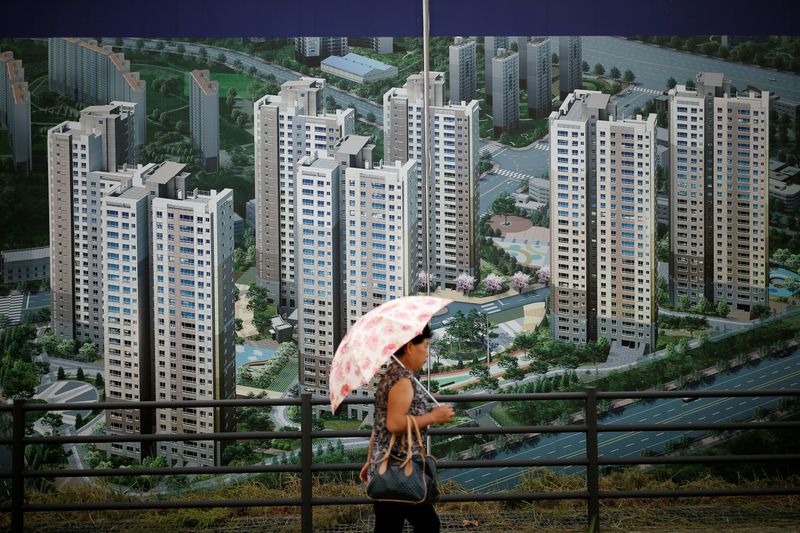SEOUL (Reuters) - South Korea's financial watchdog said on Monday it was expanding and toughening the assessment of real estate projects in a bid to speed up restructuring of the sector.
House prices in South Korea have been falling since June, 2023, as high interest rates weighed on demand, and worries about debt repayments at construction firms have grown after a mid-sized builder's decision in December to reschedule its debt.
"Despite the recent rise in delinquency rates of real estate project financing amid a sluggish property market, there have been limitations to sort out unprofitable projects for an orderly restructuring," the Financial Supervisory Service said in a statement.
The delinquency rate of real estate projects climbed to 2.70% by the end of last year, up from 1.19% a year before and 0.37% at end-2021, according to FSS.
Under the new guidelines, which will come into effect from June, more loans and financial institutions will be subject to profitability assessments related to real estate projects with more detailed criteria for a better evaluation of risks.
The FSS said it would also tighten its supervision of financial institutions to make sure they take follow-up actions on real estate projects over default risk after assessments.

To help ensure a soft-landing for the real estate market, commercial banks and insurance firms have prepared a syndicated loan of one trillion won ($731.62 million). The funds will be used to ensure there is sufficient demand and liquidity during the restructuring process and the amount could be raised to a maximum of five trillion won if needed, the FSS said.
($1 = 1,366.8300 won)